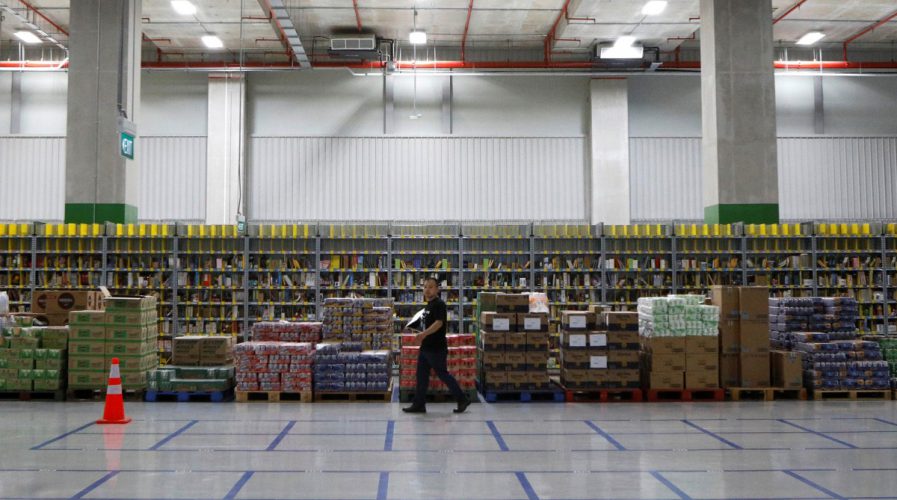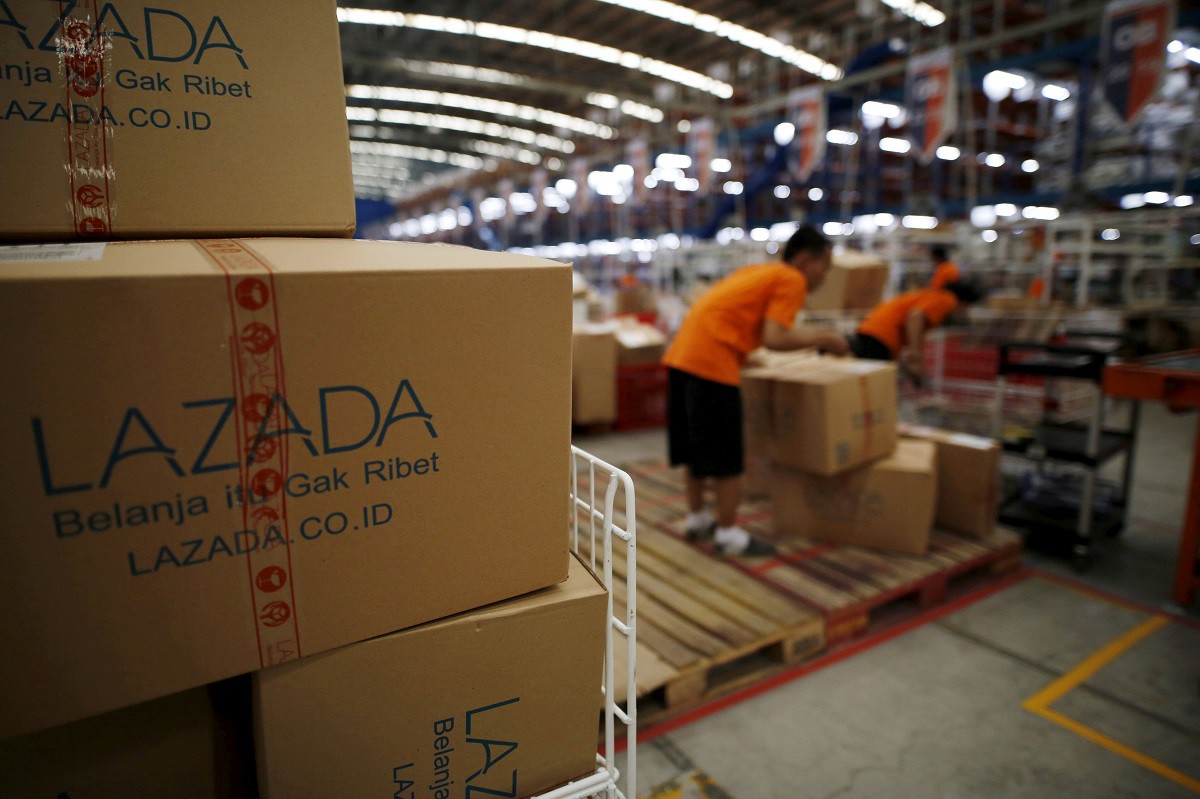
Amazon finally . Source: Reuters
Amazon’s biggest competitor in Singapore: Shopping malls
AMAZON’S aggressive expansion into the Southeast Asian region isn’t going as smoothly as the e-commerce giant might have hoped, as the e-commerce giant faces competition posed not only by formidable online rivals such as Alibaba’s Lazada, but also by an old favorite: physical shopping malls.
Amazon recently began its expansion into Southeast Asia with a Singapore launch, entering the city-state with a capable inventory and its Prime Now two-hour delivery service. Despite coming into Singapore with guns blazing, however, the American e-commerce firm has found itself lagging behind local mainstays such as Lazada, a company that has been synonymous with online shopping in the city-state for years.

Singaporeans may have welcomed the presence of Amazon but haven’t given up on shopping malls. Source: Reuters
In fact, despite Amazon’s formidable inventory in the West, its Singaporean web store is severely lacking compared to the offerings of Lazada, which now supports items from Alibaba’s Taobao marketplace. Currently, Lazada offers roughly 30 million items for its Singaporean customers. Amazon, on the other hand, currently has tens of thousands of available items in its web store for Singapore.
So you can tell that the gap between Amazon and the formidable local online shopping champion was already wide to begin with, and was made worse by the delivery pains of the US company’s launch.
SEE ALSO: Rocky start: Amazon overwhelmed by demand in Singapore
Their problems aren’t all digital, however. Amazon is also facing stiff competition from traditional brick-and-mortar stores. Shopping in air-conditioned malls, after all, is something that has practically become a national hobby for Singaporeans.
Part of the reason why shopping in physical stores is a huge national pastime for Singaporean consumers is the fact that the city-state is very small. Thus, for many potential online shoppers, going to a retail store and physically involving themselves in the shopping experience is quite literally just a few minutes away.

Shopping malls still offer customers an experience that you can’t replicate online. Source: Shutterstock
Amundi Asset Management fund manager Chan Hock Fai Astated that due to Singapore’s small size, the physical shopping industry had matured significantly in the country.
“Singapore is a very small city-state, so shopping is one of the favorite pastimes for all Singaporeans,” he said, according to a Bloomberg report.
“Because retailing is a more mature market in the country, compared with emerging retail and e-commerce markets, growth rates are harder to come by.”
SEE ALSO: Alibaba brings back old school retail with its first physical mall
Lisa Tan, a small business owner living in Singapore, described the shopping habits of consumers in the country.
“While online shopping is really convenient, I prefer to buy things in-store,” she said to Bloomberg. “I like the experience – sights and even sounds – of shopping in stores.”

Though Amazon expanded into Singapore with high hopes of dominating the market, they have to contend with mainstays Lazada. Source: Reuters
“It’s definitely more convenient in Singapore; everything is pretty much within reach. I only shop online for things I can’t easily buy in Singapore and on sites like Taobao and Amazon.”
Despite Singapore’s fondness of physical malls, however, there remains a very lucrative market for online shopping firms. This market is currently dominated by huge companies such as Lazada, which recorded 988,000 unique visitors in August 2017 alone.
SEE ALSO: India gets new ‘experience centers’ in Amazon expansion
Thus, while Singaporean customers do have a preference for shopping in physical stores, there will always be items that they would opt to buy online.
Amazon has managed to breach the Singaporean market. All it really needs to do now is to find a balance between its offerings and the overall service it gives to its customers. If the American e-commerce giant could somehow find this balance, Singapore might very well end up welcoming an excellent alternative to Alibaba’s Lazada and the physical malls that riddle the city-state.
READ MORE
- Safer Automation: How Sophic and Firmus Succeeded in Malaysia with MDEC’s Support
- Privilege granted, not gained: Intelligent authorization for enhanced infrastructure productivity
- Low-Code produces the Proof-of-Possibilities
- New Wearables Enable Staff to Work Faster and Safer
- Experts weigh in on Oracle’s departure from adland
